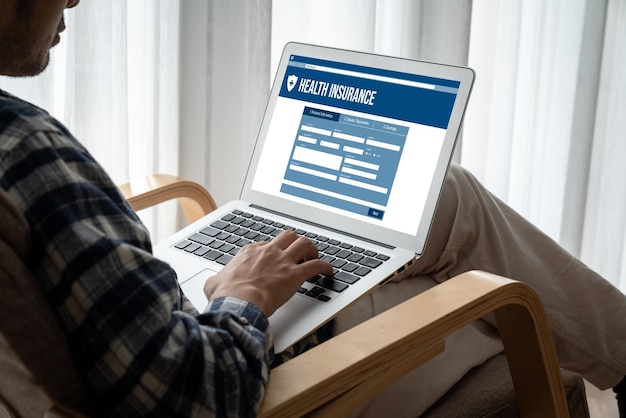Insider’s Guide: Accessing Unclaimed Funds and Property in the US

Unclaimed funds and property, often held by the government, represent assets that have been forgotten or lost by their owners; this insider’s guide provides key steps to help US residents discover and reclaim these assets.
Have you ever wondered if there’s **Insider’s Guide: How to Access Unclaimed Funds and Property Held by the Government** just waiting to be claimed? Millions of dollars in forgotten assets are held by federal and state agencies in the US. Let’s unlock how you can find and recover what’s rightfully yours.
Understanding Unclaimed Funds and Property
Unclaimed funds and property refer to financial assets or physical items that have been turned over to the government or other entities when the rightful owner cannot be located. These assets can range from forgotten bank accounts to uncashed checks, stocks, insurance payouts, and even physical items like safe deposit box contents.
The process typically begins when a financial institution, business, or organization is unable to locate the owner after a certain period, often due to a change of address or other contact information. They are then legally required to report and remit these assets to a державний agency, usually a state’s unclaimed property office.

Common Types of Unclaimed Assets
Understanding the different types of unclaimed assets can help you identify potential sources of funds you may have forgotten about.
- Bank Accounts: Dormant checking and savings accounts are a common source of unclaimed funds.
- Uncashed Checks: These can include payroll checks, dividends, tax refunds, and insurance payments.
- Stocks and Bonds: Forgotten investments or dividends can accumulate over time.
- Insurance Policies: Unclaimed life insurance payouts are another significant category.
States hold these assets indefinitely, acting as custodians until the rightful owners or their heirs come forward to claim them. This means you, or even your descendants, could potentially reclaim assets that have been sitting untouched for many years.
How to Search for Unclaimed Funds
Searching for unclaimed funds is a multi-step process that involves checking multiple sources and verifying your identity. The good news is that most of these searches can be done online, making it relatively accessible.
Here’s a step-by-step guide on how to conduct a comprehensive search for unclaimed funds and property:
Start with Your State’s Unclaimed Property Office
Each US state has an unclaimed property office that maintains a database of unclaimed assets. You can search these databases for free.

Utilize the National Association of Unclaimed Property Administrators (NAUPA)
NAUPA provides links to all state unclaimed property websites, allowing you to search multiple states from one central location.
- Visit the NAUPA website.
- Click on the link to your state’s unclaimed property website.
- Follow the instructions to search the database using your name and any previous addresses.
When searching, be sure to use variations of your name (e.g., Robert, Rob, Bob) and any former names you may have used. Also, search under the names of deceased relatives who may have left unclaimed assets.
Navigating State Unclaimed Property Websites
Each state’s unclaimed property website operates slightly differently, but the basic steps for conducting a search are generally the same.
Here’s what you can expect when navigating a state unclaimed property website:
- Search Interface: Most websites have a search bar where you can enter your name, city, and state.
- Search Results: The results typically display the name of the owner, the type of property, and the holder (the entity that turned the property over to the state).
- Claiming Instructions: If you find a match, the website will provide instructions on how to file a claim.
Tips for Effective Searching
Searching for unclaimed property effectively requires attention to detail and persistence.
Here are some tips to enhance your search:
- Use Variations of Your Name: Try different spellings and nicknames.
- Search Previous Addresses: Include all past residences, especially if you’ve moved frequently.
- Check Maiden Names: If applicable, search under your maiden name.
- Search for Deceased Relatives: You may be entitled to claim assets as an heir.
Remember to document each search you conduct, noting the date, website, and search terms used. This can help you keep track of your progress and avoid repeating searches.
Required Documentation for Claiming Funds
Once you’ve identified unclaimed property that you believe is yours, you’ll need to file a claim with the state. This typically involves providing documentation to verify your identity and ownership.
Here’s an overview of the typical documentation required:
Proof of Identity
You’ll need to provide documentation that verifies your identity, such as:
- A copy of your driver’s license or state-issued ID.
- A copy of your Social Security card.
- A copy of your passport.
Proof of Address
You’ll also need to provide documentation that verifies your current address, such as:
- A copy of a utility bill (e.g., electric, water, gas).
- A copy of a bank statement.
- A copy of a lease agreement.
In some cases, you may need to provide additional documentation, such as a birth certificate, marriage certificate, or death certificate, particularly if you are claiming assets on behalf of a deceased relative.
Avoiding Scams and Fraudulent Claims
The world of unclaimed funds is not without its potential pitfalls. Scam artists often target individuals with misleading offers to “help” them recover unclaimed property for a fee.
Here’s how to avoid scams and protect yourself from fraudulent claims:
- Be Wary of Unsolicited Offers: Be suspicious of anyone who contacts you out of the blue offering to help you recover unclaimed property for a fee.
- Never Pay Upfront Fees: Legitimate unclaimed property offices never charge upfront fees. You should only pay a fee if the service is successful in recovering funds for you.
- Verify the Source: Always verify the legitimacy of any communication you receive by contacting the relevant state unclaimed property office directly.
Red Flags to Watch Out For
Knowing the red flags of unclaimed property scams can help you protect yourself from fraud.
- High-Pressure Tactics: Be wary of anyone who uses high-pressure tactics to get you to sign up for their services.
- Requests for Sensitive Information: Never provide sensitive personal information, such as your Social Security number or bank account details, to anyone you don’t trust.
- Unrealistic Promises: Be skeptical of anyone who promises guaranteed results or claims that you are entitled to a large sum of money.
Additional Resources and Assistance
Navigating the world of unclaimed funds can be complex, but there are resources available to provide assistance.
Here are some additional resources that can help you in your search:
- State Unclaimed Property Offices: Each state’s unclaimed property office is a valuable resource for information and assistance.
- The National Association of Unclaimed Property Administrators (NAUPA): NAUPA provides educational resources and links to state unclaimed property websites.
- Legal Aid Societies: If you need legal assistance, consider contacting a legal aid society in your area.
Professional Assistance
In some cases, you may want to consider seeking professional assistance from an attorney or financial advisor.
A professional can help you navigate complex claims, particularly if you are dealing with significant sums of money or complicated legal issues.
| Key Point | Brief Description |
|---|---|
| 💰 Unclaimed Funds | Assets reported to the state due to owner inactivity. |
| 🔎 State Searches | Check individual state unclaimed property databases regularly. |
| 🛡️ Avoid Scams | Be cautious of upfront fees and unsolicited offers. |
| 📝 Documentation | Gather ID, proof of address, and relevant legal documents. |
Frequently Asked Questions (FAQ)
▼
Common unclaimed properties include bank accounts, uncashed checks, stocks, bonds, insurance policies, and contents from safe deposit boxes.
▼
Begin by searching state unclaimed property databases online. The National Association of Unclaimed Property Administrators (NAUPA) provides links to each state’s website.
▼
You’ll typically need to provide proof of identity (like a driver’s license) and proof of address (like a utility bill).
▼
Be wary of unsolicited offers, never pay upfront fees, and verify the source by contacting the state unclaimed property office directly.
▼
Yes, you can search for unclaimed funds belonging to deceased relatives, you may need to provide documentation such as a death certificate.
Conclusion
Discovering and claiming unclaimed funds requires patience and persistence, but the potential rewards can be significant. By following the steps outlined in this guide, you can navigate the process effectively and reclaim what’s rightfully yours, enhancing your financial well-being.





